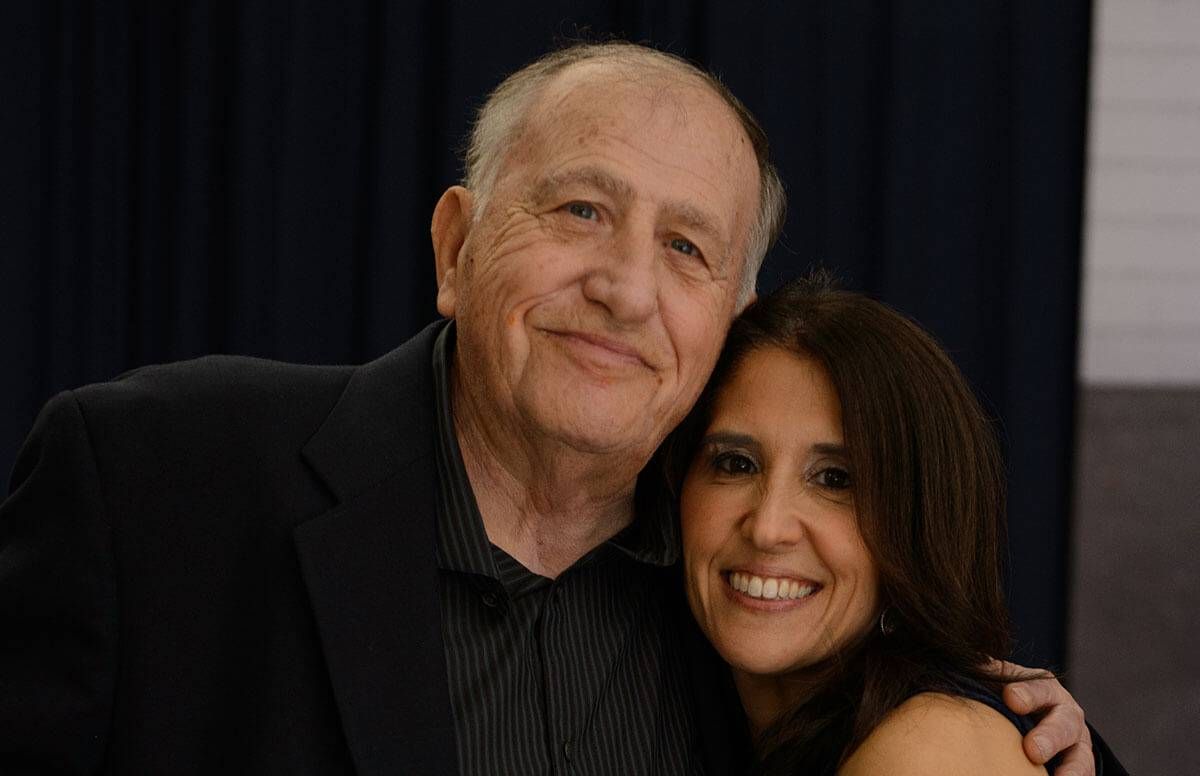A Dozen Lessons From My Father's Terminal Illness
Finding the right help and setting priorities really matter
At 74, my father found out he had stage 3 lung cancer. The prognosis was grim.

That was six years ago. Last month, Dad celebrated his 80th birthday.
Even though his disease is terminal, our lives have gone on and we've learned a lot along the way through our relationships with each other and other family members. And we've learned a lot from a variety of medical professionals who have helped us.
Here are lessons from my father's terminal illness, along with wise advice from medical and mental health care professionals:
1. People need time to process. Not surprisingly, my father was very down after his initial diagnosis. Although he had always been a fighter and never one to give up, he told us he had no intention of going to an oncologist or treating his cancer.
“Allowing patients time to embrace their feelings surrounding the upcoming change is essential,” says Lauren Cook, a psychotherapist and clinical psychologist candidate at Pepperdine University in Malibu, Calif. “Give them space to process any feelings of sadness, anger, frustration, fear and any other emotions they are experiencing."
After a month, Dad decided to meet with an oncologist and learn about his options.
2. Get a second opinion. The first oncologist believed any treatment would be ineffective and debilitating. Upset and discouraged, we sought a second (and a third) opinion. Both were more optimistic and encouraging.
“It is important to get another opinion to make sure that there isn't something that was missed," says Robyn Flint, a mental health counselor in Bedford, Va. A second opinion may open up doors to new treatment options or may discover a completely different diagnosis. On the other hand, a second or third opinion may confirm the original diagnosis and give the patient more confirmation that no stones were left unturned.”
"Know that you have done your best. And don't be afraid to laugh. Humor can get your through the darkest days."
3. Choose a doctor wisely. You don’t need the doctor with the most prestigious degree or at the top of the Best Doctors list to receive the best care. “Patients process information differently, so they'll want to find a doctor who is not only an expert in their particular condition, but is also matched to their own preferences and personalities,” says Dr. Shaheen Lakhan, vice president of research and development at The Learning Corp., a digital brain health and therapeutics company, and founding executive director of the Global Neuroscience Initiative Foundation.
At the time of his initial consult, my father was recovering from an unrelated abdominal surgery. He was frail and using a wheelchair. The second oncologist we met with was very compassionate. He asked more questions than the others and listened attentively.
After a long conversation in his office, the doctor wanted to examine my father. Dad wanted to try to walk into the exam room. The doctor replied, “Sure, you can lean on me," and then he helped my father out of the wheelchair and patiently walked with him. At that moment, we knew that whatever my Dad’s life held next, we didn’t need a fancy doctor, we needed this doctor.
4. Your loved one is still the same person. My father has continued to smoke cigarettes. We have asked ourselves, "Why would he continue to do the very thing that caused his cancer?" and "If he loves us, why wouldn't he give up cigarettes to be with us longer?" I won’t say his choice doesn't upset me, but I try not to let his decision ruin the time we have left together.
Terminal illness doesn’t necessarily change a person’s personality. "The patient is still going to be who they are and, sometimes, extreme versions of themselves. If they were grumpy before, they might even be grumpier,” says Dawn Veselka, co-founder of the Chronic Warrior Collective, an online support group for chronically ill patients and their caregivers.
5. Let your loved one set the agenda. I had hoped to go on a big family trip during a time when my father was feeling better. But that wasn't on his bucket list and I had to accept that. Instead, my dad is happiest when he can go fishing, play golf or participate in his twice-weekly bridge game.
At first, he didn't think he would want to play bridge anymore, fearing that his card buddies would pity him. But instead, these games are the high point of his week. He feels like himself; he focuses on winning the hand, not on being a cancer patient.
“Staying active and living their normal life is always a good option until it isn't anymore,” Flint says. Cook suggests patients make a list of the things they would like to do with the time they have left and says, “While patients probably cannot do all the things that they may want to do, they can mindfully choose how they want to spend their remaining time.”
6. Focus on your relationship, not the illness. Every conversation between my father and me these days is not about cancer. Our best talks during the past few years have been about old memories, his grandkids, movies and sports.
7. Caregivers and family members, don’t expect perfection. Some days aren't going to be Hallmark-worthy, even if you do appreciate the time your spend with your loved one. "Be kind to yourself and forgive yourself and don't feel guilty,” advises Denise Archilla, the other co-founder of Chronic Warrior Collective. “Know that you have done your best. And don't be afraid to laugh. Humor can get you through the darkest days."
8. Don’t give up hope. As it turns out, Dad’s first oncologist was correct — his cancer was unresponsive to chemotherapy. The debilitating side effects were terrible and made life intolerable. After three months, Dad decided to stop treatment.
But what the first doctor didn't know was that those months following the chemo would bridge my father to a new immunotherapy drug trial. His cancer responded to the new drug and side effects were minimal. Hope (and a lot of luck) ultimately changed my Dad’s prognosis.
“Hope can be a powerful emotion not only in boosting the patient’s mood and outlook, but as a driving motivation to stay mentally engaged and committed to living the highest quality of life possible for as long as possible,” Lakhan says.
9. Remember, your loved one is still there. Family members may want to take control of the situation and make decisions for their loved one. However, if the person is of sound mind, the decisions are his or hers to make. Let your loved one have control and don't make him or her feel guilty about choices.
In time, patients may need help with things like bathing and preparing meals. But until then, they may feel better taking care of themselves.
“The important thing is to help them feel validated and safe to rely on you for whatever the illness brings,” Flint says. “They may not want to live like a terminally ill person. They may want you to help them feel the way they did before they were diagnosed.”
10. Keep your emotions in check. Caregivers should not share their fears and emotions with their loved ones who are terminally ill. “Put on a loving game face,” Flint says. “While you may be struggling with coming to terms with the impending loss of a friend or family member, you should not show that struggle to the one who is sick. That may compound their stress and anxiety.”
Reach out to friends, family or a counselor to support your needs while you support your loved one.
11. Get along -- or fake it. Related to No. 5, sometimes for the sake of your loved one, you have to work harder to get along with your loved one.
“It’s an emotional, tense time for everyone,” Archilla says. “Remember that your number one job is to support the patient. Don't argue in front of the patient or ask them to mediate; they are already dealing with enough. Caretakers need to pace themselves and take turns, especially if it's a long illness."
12. Make end-of-life plans. No one wants to talk about death or dying, but it’s imperative to do just that with your loved one before you get to that point. Archilla says, "It's one of the hardest things to do, but it's a blessing for family members to know what the patient wants at the end of life and will save them from having to guess what the patient would want.”


